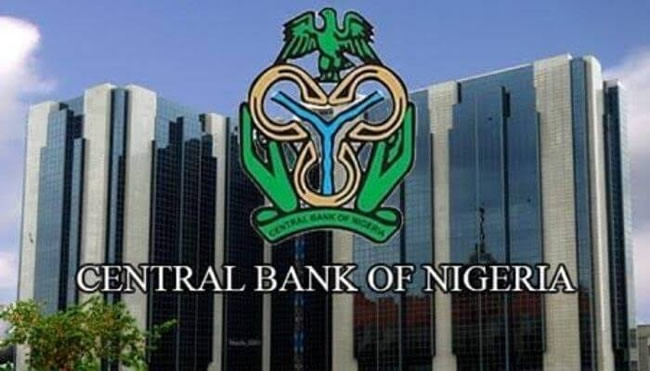Potential implications of Unity and Providus banks’ merger

CBN Building
Potential implications of Unity and Providus banks’ merger
(Article by Ade Adesokan, a public affairs commentator)
The Central Bank of Nigeria (CBN) has approved for financial accommodation to support the proposed merger between Unity Bank Plc and Providus Bank Limited.
The apex bank, in a statement by its Acting Director of Corporate Communications, Hakama Sidi-Ali, said the move is designed to bolster the stability of the nation’s financial system and avert potential systemic risks.
The statement reads; “The merger is contingent upon the financial support from the CBN. The fund will be instrumental in addressing Unity Bank’s total obligations to the Central Bank and other stakeholders.
“It is unequivocal to state that the CBN’s action is under the provisions of Section 42 (2) of the CBN Act, 2007. This arrangement is crucial for the financial health and operational stability of the post-merger organisation.
“It is important to emphasise that no Nigerian bank currently faces a precarious situation comparable to that of Heritage Bank, which was recently liquidated.”
The CBN said it remains committed to safeguarding depositors’ interests and ensuring the smooth functioning of the banking sector through proactive measures and strategic interventions.
IMPLICATIONS
The CBN’s approval of the merger of these banks is a strategic move aimed at stabilizing the financial sector and addressing systemic risks.
While the merger presents opportunities for enhanced stability and operational efficiencies, it also poses integration and compliance challenges.
The success of this merger will depend on effective management of these challenges and the ability to realize the anticipated synergies.
While there are prospects for career growth and enhanced job security, there are also risks of redundancies and the need for cultural and operational adjustments.
Effective communication and support from management will be key to ensuring a smooth transition for all employees involved.
Undoubtedly, there have been several successful bank mergers in the Nigerian banking industry.
1. Access Bank and Diamond Bank (2019)
Access Bank’s merger with Diamond Bank was one of the largest and most strategic mergers in Nigeria. The merger aimed to create a stronger and more competitive bank with a significant market share.
The integration process focused on retaining key talent and aligning corporate cultures. Training programs and clear communication helped in managing the transition effectively
2. Access Bank and Intercontinental Bank (2012 )
Access Bank’s acquisition of Intercontinental Bank was part of its expansion strategy. The merger helped Access Bank to significantly increase its asset base and market presence.
In addition, the bank implemented comprehensive training and support programs to help employees adapt to new roles and systems. This approach minimized disruptions and maintained employee morale
3. Ecobank and Oceanic Bank (2011)
Ecobank’s acquisition of Oceanic Bank was aimed at consolidating its position in the Nigerian banking sector.
The merger focused on leveraging synergies and enhancing operational efficiencies.
The integration process included extensive training and development programs to ensure a smooth transition for employees.
Also efforts were made to align corporate cultures and retain key talent.
These examples highlight the importance of strategic planning and employee-centric approaches in achieving successful mergers.
While there are prospects for increased market capitalization, enhanced financial stability and operational synergies, there are also risks related to share dilution, integration challenges and market reactions.
Expectedly, shareholders will need to closely monitor the integration process and the financial performance of the merged entity to assess the long-term impact on their investments.
However, we shouldn’t forget in a hurry the merger between the United Bank for Africa (UBA) and Standard Trust Bank (STB) in 2005 which was a significant event in Nigeria’s banking history.
It came with several challenges which include cultural integration, different corporate cultures and human resources management.
They both had distinct corporate cultures and management styles. Integrating these cultures to create a cohesive work environment was a major challenge.
The merger led to overlapping roles and departments, resulting in redundancies.
Also managing layoffs and ensuring fair treatment of affected employees was then a sensitive issue.
Therefore, maintaining the confidence of shareholders, customers and other stakeholders during the merger process was essential. Any negative perception could have impacted the bank’s reputation and market position.
Despite these challenges, the merger between these two banks was ultimately successful, creating one of the largest and most influential banks in Nigeria.
The lessons learned from these mergers could provide valuable insights for Unity and Providus bank post-merger performance in the nearest future
While there is no concrete evidence to suggest direct political interference in the merger between Unity Bank and Providus Bank, it is important to consider the broader regulatory and economic context in which such mergers occur.
The involvement of the CBN and the potential impact on economic stability and financial inclusion are key factors that could have political dimensions.
Ade Adesokan is a public affairs commentator




